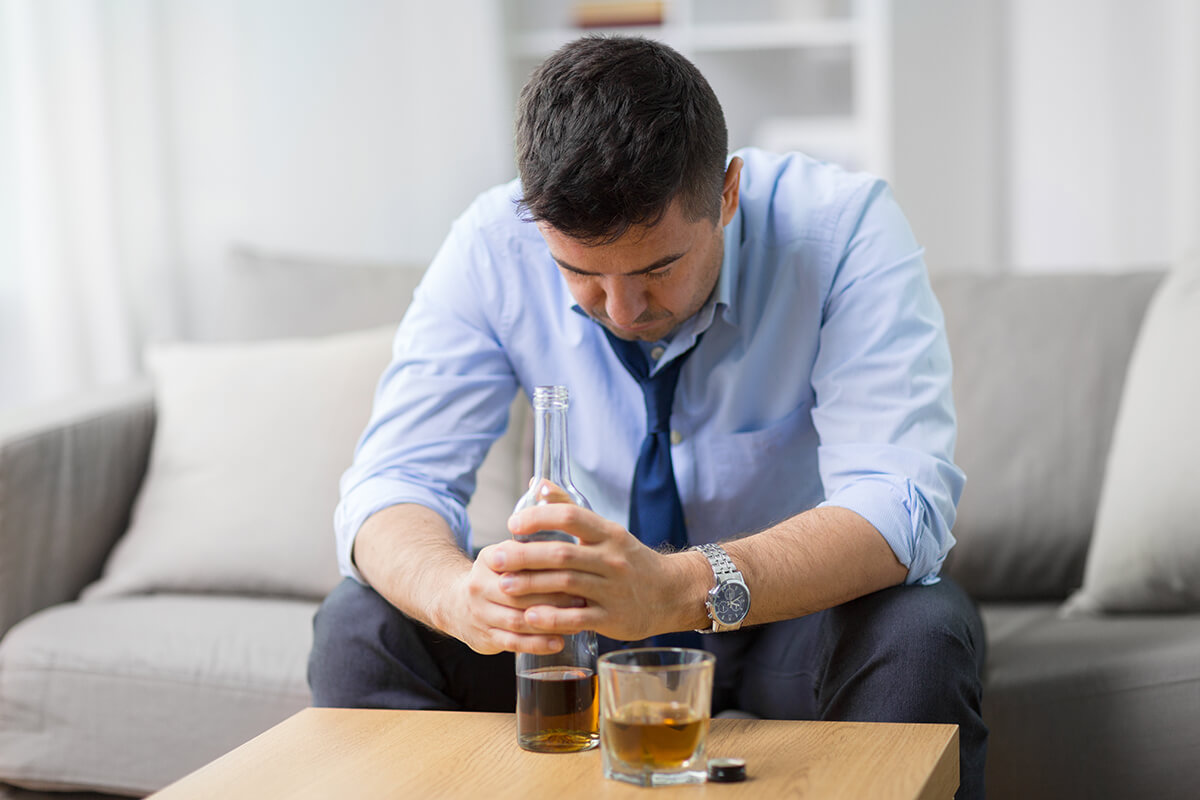
Why do people drink alcohol? Usually, it is to enhance their mood. When people drink a bit, they tend to lose some of their inhibitions and become much more open to their emotions. In this way, alcohol acts as a stimulant. However, alcohol is also a depressant. But, you may wonder, how is alcohol a depressant and stimulant? Alcohol’s effects on your body can influence your moods. Fortunately, Georgia Addiction Treatment Center can help explain how and get your or a loved one the necessary alcohol addiction treatment.
Is Alcohol a Depressant?
Alcohol is a drug classified as a depressant. This fact means that when you take this drug, it will slow down some of your vital functions. As a result, you show symptoms such as slurred speech and unsteady movement. You are unable to react quickly, and your perceptions are skewed. Sometimes, even standing steady on your feet is hard.
Alcohol affects not only the body but the mind as well. Alcohol reduces your ability to think rationally and distorts your judgment. Consuming too much alcohol rapidly at one time can cause significant damage to your body. It depresses the central nervous system, which can lead to respiratory failure, coma, or even death.
What Are the Effects of Alcohol?
While alcohol indeed has depressant effects, the type of effect you experience depends on the amount you consume. Drinking a small amount of alcohol, like a glass or two of wine or beer, provides a stimulant effect. It makes you “loosen up,” which reduces your inhibitions.
When alcohol excites your nervous system, you begin to show symptoms such as:
- Increased heart rate
- High blood pressure
- Impulsiveness
- Increased aggression
The stimulant effects of alcohol happen when your blood alcohol concentration (BAC) reaches 0.05mg per liter. If your BAC increases to 0.08mg per liter, you will then experience its depressant effects. However, take note that the effects of alcohol vary from individual to individual. Several factors influence the effects of alcohol on the body that include:
- Sex
- Weight
- Body chemistry
- Alcohol tolerance
- Amount of alcohol consumed
Considering these factors, some people experience more of the depressant effects than others. If you are more stimulated than sedated by alcohol, researchers believe you have a higher risk of substance abuse. On that note, it is crucial to be aware of the symptoms of alcoholism.
Alcohol is known more for its depressant effects. A person going through an alcohol overdose will experience sedative effects to the point of unconsciousness, coma, and death. But besides these, alcohol can also increase anxiety and stress. The more you drink, the higher is the risk of you having an emotional response such as anger or depression. Programs like individual therapy can help work through problems instead of running from them.
Alcohol and Depression
Alcohol abuse is closely related to depression. The situation can be that you are already depressed, and you use alcohol to dull your emotions. Alcohol has a significant impact on your mental health that may lead to dual diagnosis.
People struggling with a mental health disorder, particularly of depression, experience anxiety, and angry outbursts. Depressed people also have intense feelings of worthlessness. Because of these feelings, they lose interest in most things around them. They don’t do their normal activities anymore and sometimes isolate themselves from loved ones.
Drinking is a way individuals self-medicate believing it alleviates the symptoms of depression. But as you know, abuse of alcohol has a profound impact on the brain that worsens mental illnesses. If you continue to drink heavily while you have depression, it reduces your serotonin levels. It influences your mood, which causes further depressed feelings. Alcohol does not help depression at all.
Reach Out for Treatment at Georgia Addiction Treatment Center
It is, but the effects of this substance all depend on how much you consume. If someone you know drinks heavily and, worse, have a mental disorder, it is important to seek help. Contact the medical professionals at the Georgia Addiction Treatment Center at [Direct] to find out more about our substance abuse treatment programs.




